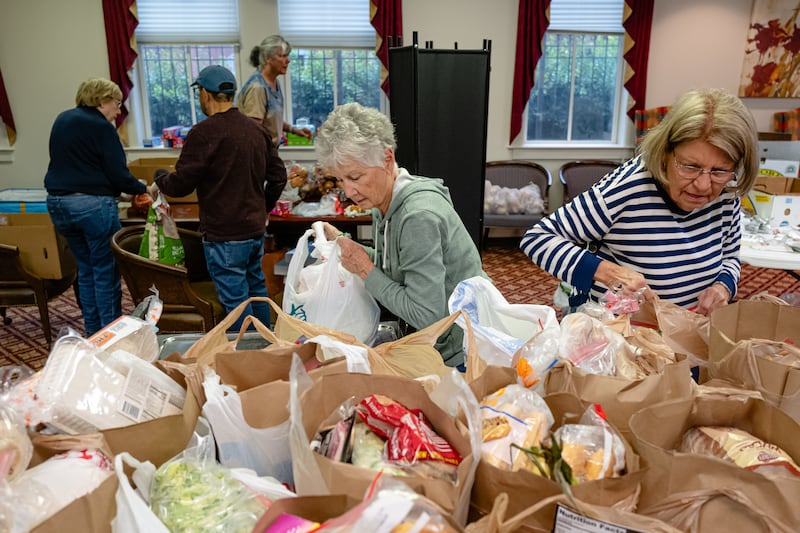“Suppose a brother or a sister is without clothes and daily food. If one of you says to them, ‘Go in peace; keep warm and well fed,’ but does nothing about their physical needs, what good is it?“ (James 2:15-16)
People experience hunger for a variety of reasons. Some people lose their jobs, exhaust their unemployment benefits and have no income for food. Some people are disabled and cannot work to purchase food. Imagine a cancer patient who must receive chemotherapy or a person in renal failure who needs dialysis several times a week and relies on the Supplemental Nutrition Assistance Program (SNAP) for assistance. How are single unemployed parents supposed to put food on the table for their children?
It’s good that the government created the SNAP program. In the absence of SNAP, however, scripture invites us to be active participants in helping humanity. For those of us who are gainfully employed, families with two incomes or those who have multiple streams of income, we are asked to not turn a blind eye and passively wish others “good luck with that” but to be a present resource. We are asked to be a neighbor, a friend and a thoughtful donor to those who are cold and hungry. It is humanity helping humanity.
The National Institutes of Health report that the impact of hunger on children can have a life-altering effect. More specifically, missing meals and not eating nutritious foods can negatively impact not only the ability to gain weight, but cognitive capacity, energy and mood.
Hunger is nonpartisan. It is not Democratic or Republican. It is not red, blue or purple. It is not gender- or religion-based. Some of us are a paycheck, a divorce or an illness away from having to choose whether to pay rent or buy food. Some of us are already in that position. And food is expensive.
Some of us have many choices when we want to eat. We can go to the grocery store and select almost anything we want to eat. We can eat at a restaurant. We can order food for delivery. We can cook a meal from many options in our refrigerator, freezer or cabinet. The food is tasty and filling. Sometimes there are leftovers, which are even better the next day. Sometimes there is too much food or we are so full that we throw away the unwanted food.
But many people don’t have choices. They have one choice — the food pantry. There is no extra food. Some people need to go to the food pantry every day or every week to feed their family, to hush the cries of children. Some make the sacrifice to do without so that there will be more food for others.
Hunger and food insecurity is not about “them.” It is about us. It is about what we can do for one another.
There are approximately 42 million Americans who receive SNAP benefits. These 42 million people are our neighbors. Some will ask for help. Some will experience hunger in silence because they are ashamed to ask for help.
In these situations where we witness hungry people without food, what are we to do? When children are crying because their little stomachs are empty, how should we respond? When senior citizens and the disabled experience hunger pangs, stomach cramps and dizziness, how can we help?
While food pantries need food, they also need can openers for canned products. They need bread to go with the peanut butter, jelly and sandwich meat. There is a need for milk for cereal, and for boxed meals.
Families who receive SNAP benefits and depend on them to sustain their livelihood may need other kinds of support as well. They may need help in learning how to prepare and stretch meals. They may need support in planting a garden that will provide fresh vegetables next summer. They may need assistance interviewing for or finding a job that will help lift them out of poverty and break generational cycles.
We should not allow ourselves to be comfortable or indifferent watching people suffer or judging their circumstances. Hunger and food insecurity is not about “them.” It is about us. It is about what we can do for one another. There is so much brilliance, wealth and compassion in America. Let’s find ways to help our neighbors who are in need.



